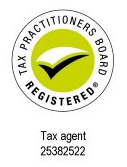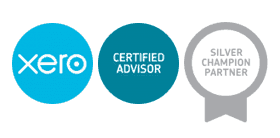When someone asks you “how much cash do you want?” your first instinct will probably be to answer, “as much as I possibly can!” However, while having cash is certainly a good thing, keeping that cash in an entirely liquid form is likely an inefficient distribution of your wealth. After all, having cash is only as good as the things you can buy with it. Knowing the average cash on hand for small businesses will make it easier for your business to determine a level that’s appropriate for you.
There is no “magic number” that can sufficiently describe the exact amount of cash your business should have available at any given time. Things such as the industry your business operates in, the liquidity of your total assets, and your long-term financial objectives will all need to be accounted for. However, based on the many trials and errors businesses have collectively experienced, there are still a few guidelines your business may find helpful.
In this article, we will discuss the many things your business should be thinking about when deciding how much cash to have on hand. By paying close attention to your finances and keeping these things in mind, your business will be able to maximize its efficiency without assuming too much risk.
What is the Average Cash on Hand for Small Businesses?
While there are still many subjective variables that need to be accounted for, the general rule of thumb will tell you that your business should have 3 to 6 months of operating expenses in cash at any given time. In the event that something goes wrong—suppose your business loses a major source of revenue or needs to cover an unexpected expense—having 3 to 6 months of cash will bide you enough time to make adjustments. At the same time, this is not such an exorbitant amount of cash that your business will be operating inefficiently.
In order to calculate your expected monthly operating expenses, you will need to begin by looking at your most recent income statement. Both your fixed overhead expenses and your variable costs of goods sold will need to be accounted for. If your business is one that is highly seasonal or has experienced any major changes since the income statement was produced, you may need to make a few adjustments to this figure. Once you have determined your monthly operating expenses, you can then multiply by the number of months (usually 3 to 6) you deem appropriate.
Adapting your Model to Industry Standards
As is the case with using any rule of thumb, your business will likely still need to take a closer look at your financial situation. If you are a new business, you may want to consider comparing your typical level of cash on hand to other businesses in your industry. This will help you determine if the industry you are operating intends to have any exceptions to the rule.
You will also want to consider the following things:
- How liquid are your other assets? If few of your non-cash assets are near liquidity, you may want to consider having more months of cash in hand. This is especially true for niche industries who are heavily invested in specialized machines.
- Is your wealth generally depreciating or appreciating? If a significant portion of your assets is appreciating in value (ex: real estate investment), then your business can likely afford to have less cash on hand.
- How flexible is your spending situation? When looking over your balance sheet, it will be important to consider how much of your spending is absolutely mandatory and how much of your spending is “discretionary.” Having more discretionary expenses may make it possible to hold less cash. Many accountants prefer to assign each expense item to a specific category.
A company that is in the banking industry will naturally need to have much more cash in hand than a company that works in the digital marketing space (in fact, the FDIC requires it). While the 3 to 6-month rule of thumb mentioned above can certainly come in handy, it is obvious that your business will need to look at the bigger picture.
Determining the Amount of Cash on Hand that’s Right for your Business
Another variable that your business will want to consider is the opportunity cost. By keeping excess cash in a bank account, your wealth will be increasing at a rate that is likely even lower than inflation. If your business could take that cash and invest it—in bonds, stocks, or material assets—you could potentially be building your wealth while still having something to fall back on in case of an emergency.
Businesses that are operating on a smaller scale may not be as enticed to constantly be shuffling their wealth between cash and near-cash investments. But if your business could earn even a 2 percent greater return on $1 million in cash, you will be able to better your bottom line by $20,000 per year. Accounting for the opportunity cost of any specific investment is yet another way determining the “perfect number” for your business can be rather complicated. Consequently, a thorough analysis of your business’ subjective variables will be necessary in order to get a satisfying answer.
Conclusion
The amount of cash that is right for your business will depend on a variety of different factors. Though many businesses use the 3 to 6 months of operating expenses rule as a general guideline, you will need to take a closer look inward. By making adjustments, understanding your needs and risk preferences, and accounting for every component of your business, you should be able to get the answer you’ve been looking for.








